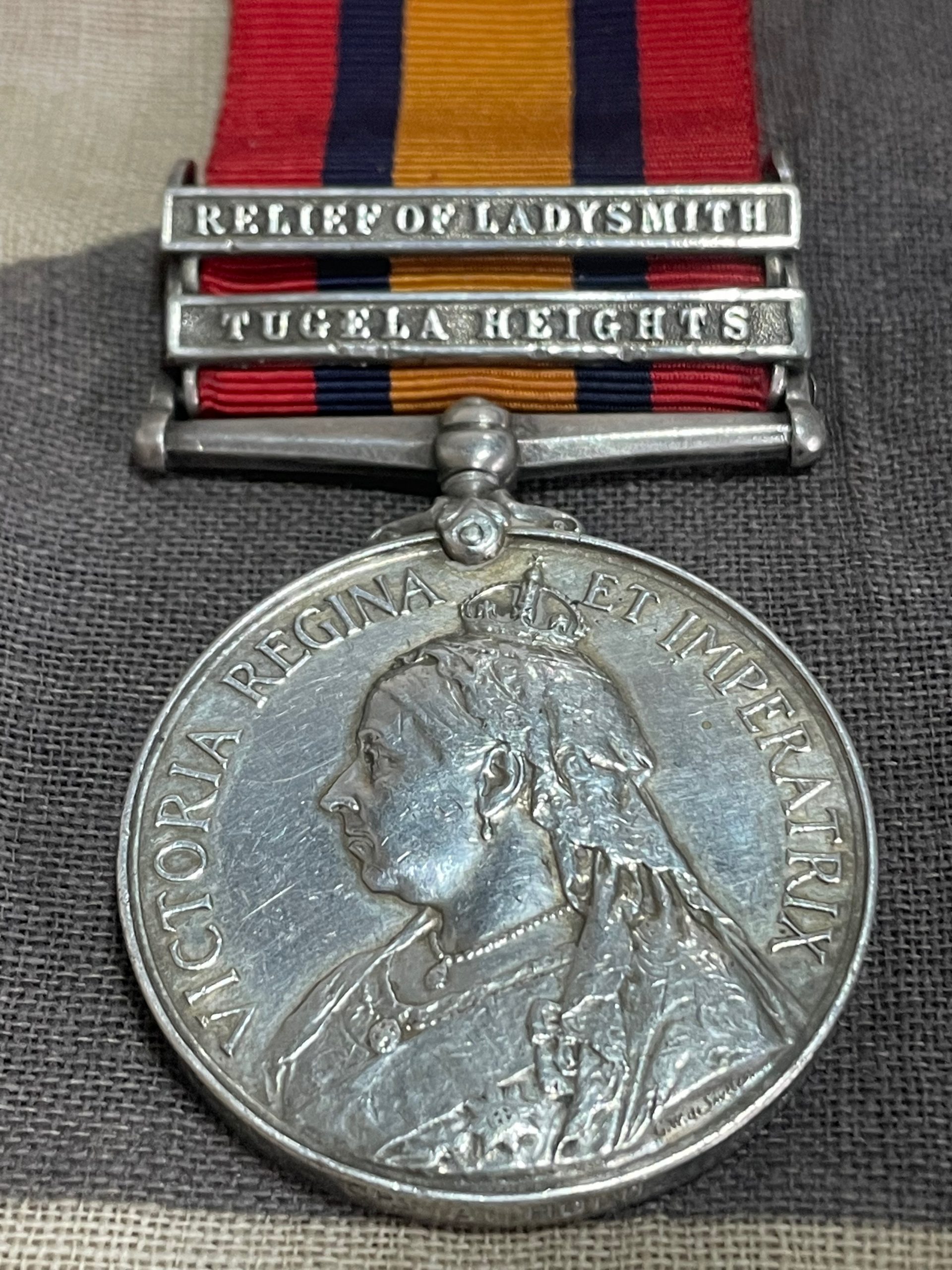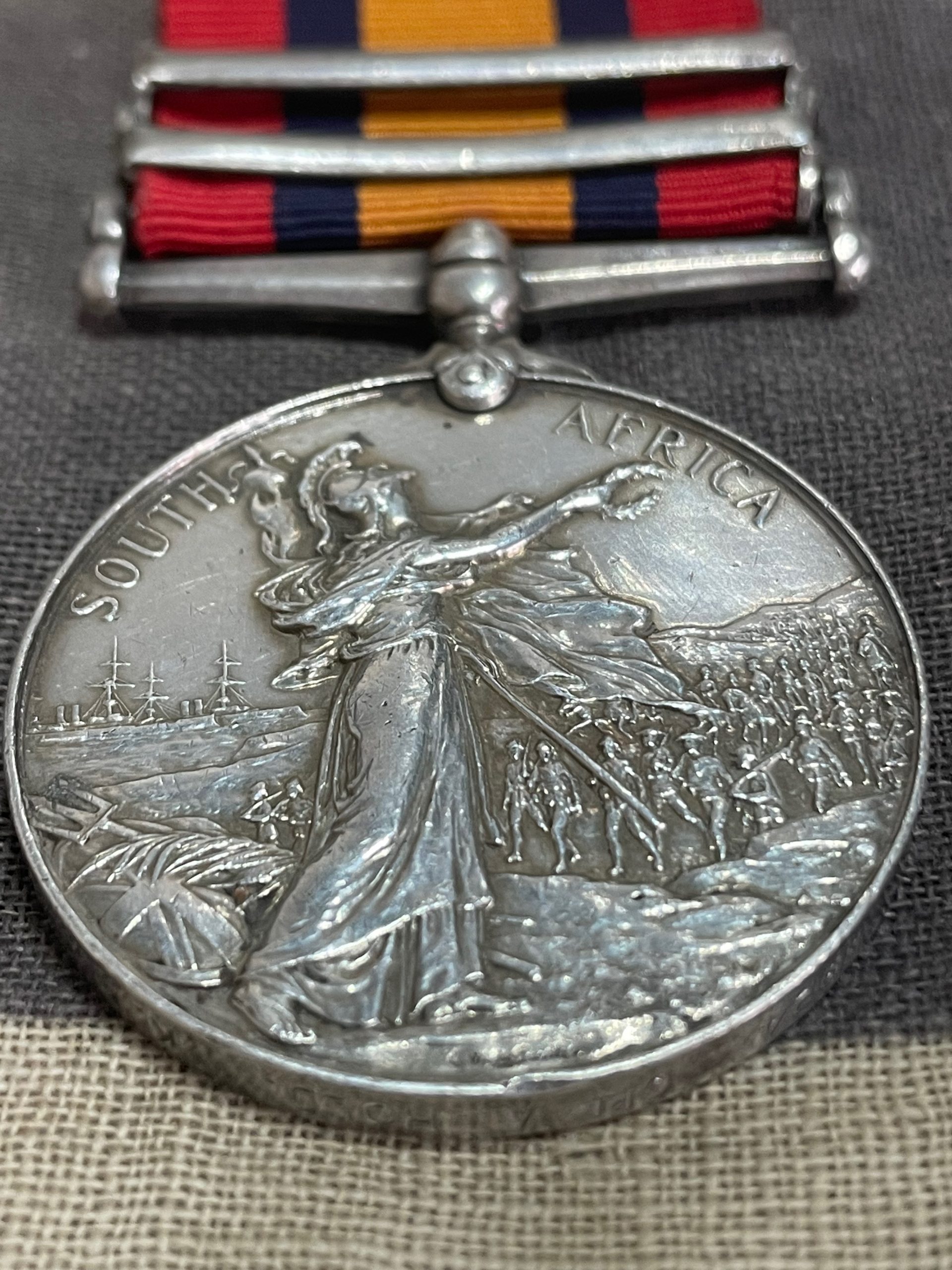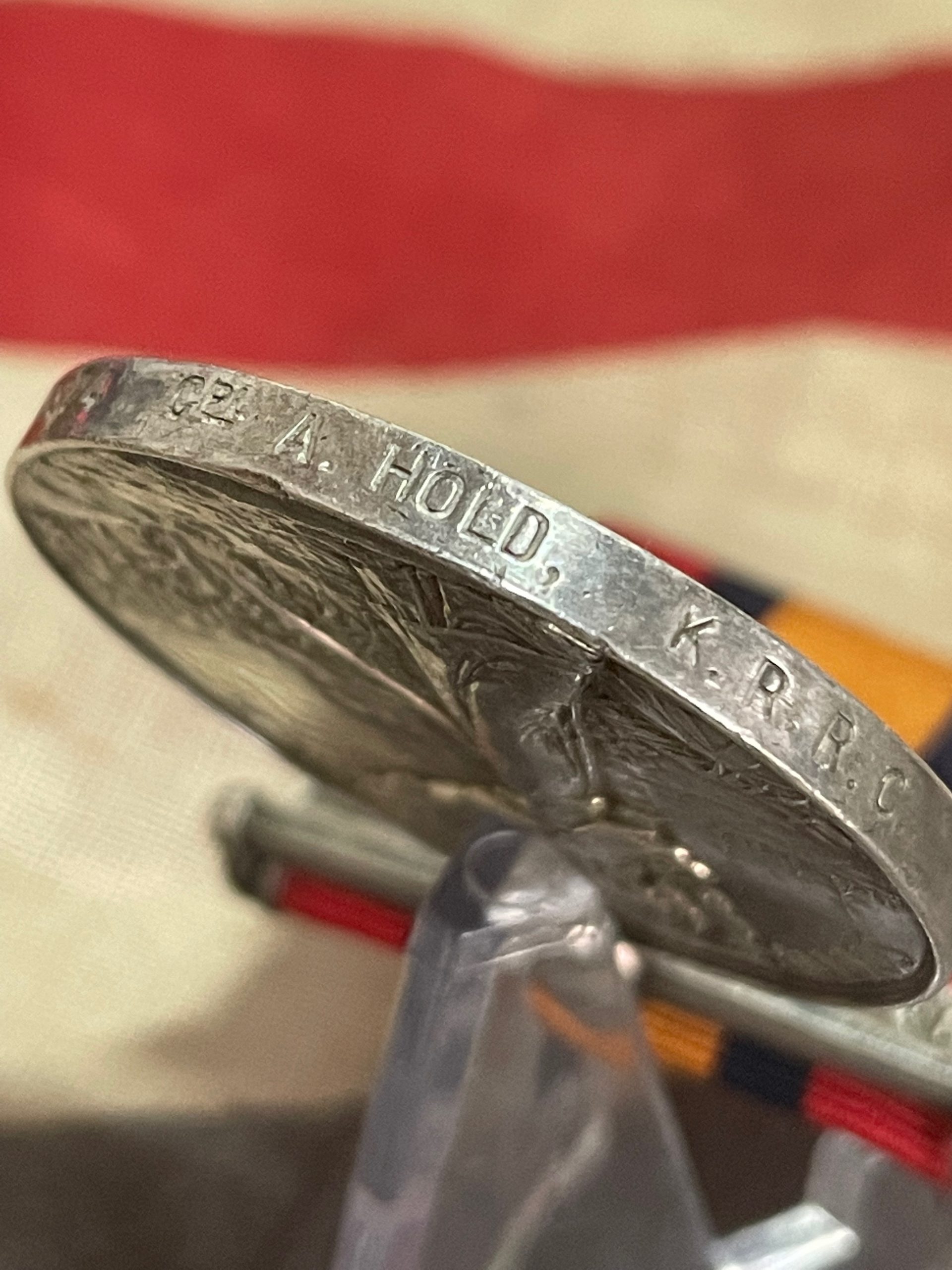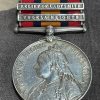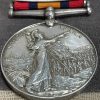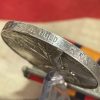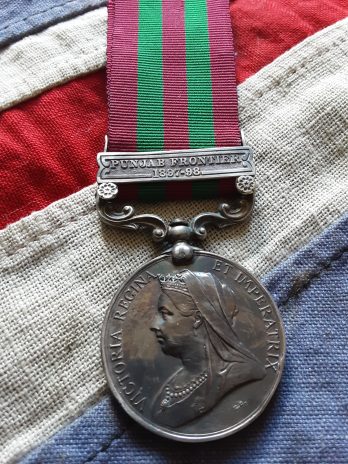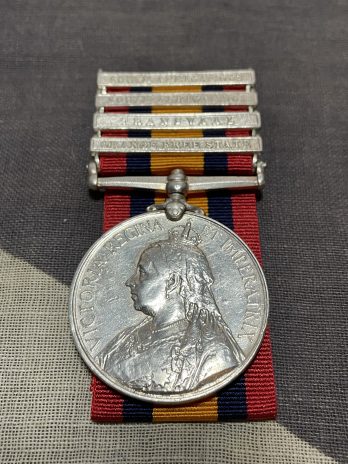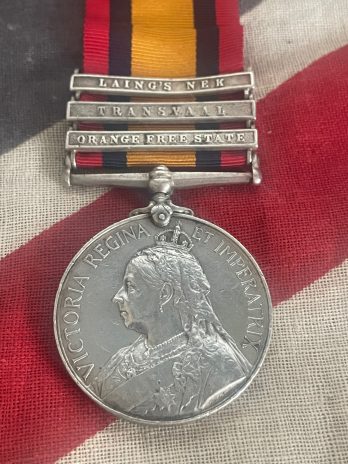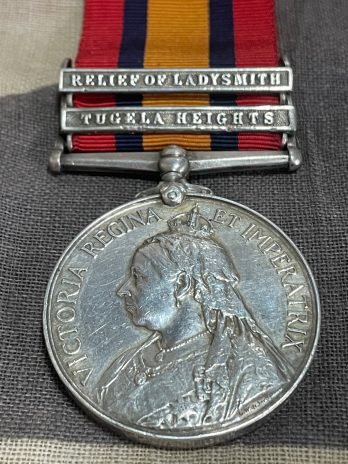Correctly named 8924 Cpl A Hold KRRC
Queens South Africa Medal with Tugela Heights and Relief Of Ladysmith clasps.
Albert was born in the Parish of Weedon, Northamptonshire in 1876. He enlisted with the 3rd Bn KRRC when he was 18 in February 1895.
He served overseas in South Africa, Bermuda and India with the KRRC.
For South Africa, the 3rd Battalion sailed on the Servia on 4th November 1899, arrived at the Cape about the 24th, and was sent on to Durban.
At Colenso the battalion was not in the thickest, being, along with the 2nd Scottish Rifles, escort to Captain Jones’s two 47 naval guns and four 12-pounder guns. They had almost no casualties. Their first heavy fighting was on 24th January 1900. A sketch of the great combat on Spion Kop is given under the 2nd Royal Lancaster, and reference is also made to the 2nd Scottish Rifles, whose task that day was not unlike that of the 3rd King’s Royal Rifles. In the Natal Army despatches, there is an admirably clear report by Major Bewick-Copley of what the battalion did. Leaving Spearman’s Hill at 10 am, they crossed the Tugela and advanced in widely extended order against the Twin Peaks north-east of Spion Kop, the right-half battalion attacking the right hill, called Sugar-Loaf Hill, and the left-half battalion the other hill. Both hills and the nek between them were strongly held. At 4.45 pm the Sugar-Loaf Hill was carried, “the Boers only leaving as the men’s swords came over the crest-line”. Lieutenant Colonel Buchanan-Riddell was killed as he cheered his men in the final rush. Shortly afterwards the left hill was carried by Major Bewick-Copley’s command. “Though still under a galling fire from both flanks, we were able to stop the fire of the machine guns 150 yards to our front, and also to keep down the fire of the Boers, which was being directed on to the right flank of Sir Charles Warren’s troops, holding the main ridge of Spion Kop”. About 6.30 the battalion received General Lyttelton’s order to retire, and “by midnight had recrossed the Tugela practically unmolested”. The fact that the hills were so very steep, and that the operation was very skilfully carried out, rendered the casualty list less heavy than was to have been expected. The battalion’s losses were approximately 17 killed and 61 wounded, almost precisely the same as that of the Cameronians. Another very good account of this engagement is to be found in the King’s Royal Rifle Corps Chronicle for 1901.
The battalion took part in the storming of Vaal Krantz, where their losses were approximately 1 officer and 20 men wounded. They were also in the work between 13th and 27th February, and after the Tugela was crossed had some very heavy fighting. During the fourteen days’ fighting the losses of the King’s Royal Rifles, including those of officers and men in the Composite Battalion, were approximately 1 officer and 16 men killed, 5 officers and 84 men wounded.
Three officers and 25 men were mentioned in despatches for work in the relief operations, 3 men being recommended for the distinguished conduct medal.
The 3rd King’s Royal Rifles, like the other regiments of the 4th Brigade, were chiefly employed in guarding the railway line and fighting on either side of it after the forces of Lord Roberts and General Buller had joined hands.
Albert was the rank of Sergeant when he was awarded his Army Long Service Medal. He was transferred to the 1st Garrison Battalion Oxford & Buckinghamshire Light Infantry in 1915 and was sent overseas with them to India in July 1916, at the same time he was promoted to Quartermaster Sergeant.
He returned from India in 1919. He was discharged after 24 years and 77 days with the colours and reached the rank of Regimental Quartermaster Sergeant.
He had married Elizabeth Annie Rachel Rosanna Heathman in 1911. At that time their address was 117 Eastfield Road, Eastney in Portsmouth.
After Albert was discharged, they moved to Rugby in Warwickshire in 1921. Albert died in Ruby in 1936.
His medal entitlement would be the QSA, KSA, British War Medal and the Army LSGC.
Related products
-
Pre WWI
India GSM. Punjab Frontier. Thomas Cleveland. 1st Royal West Kents. Deptford.
£170.00£160.00 Add to basket


